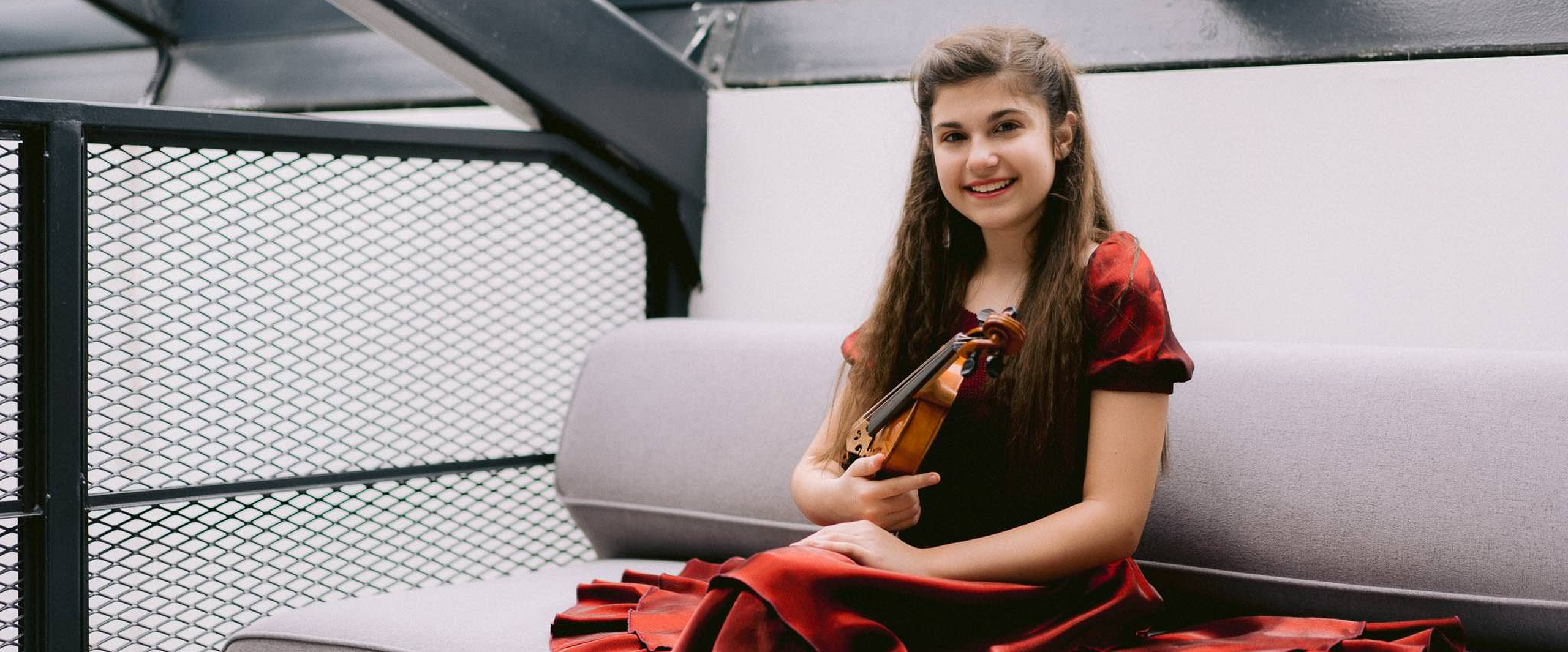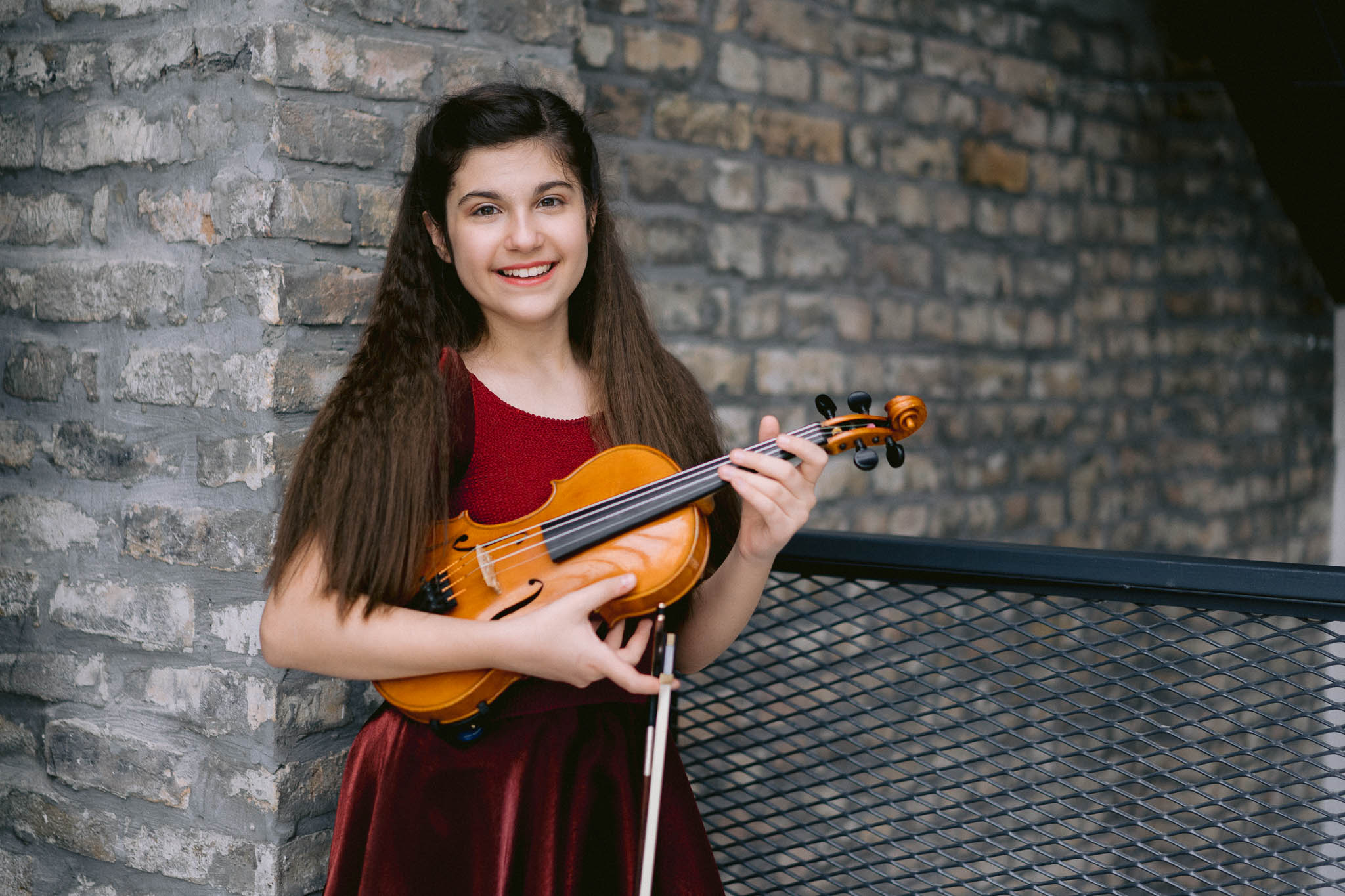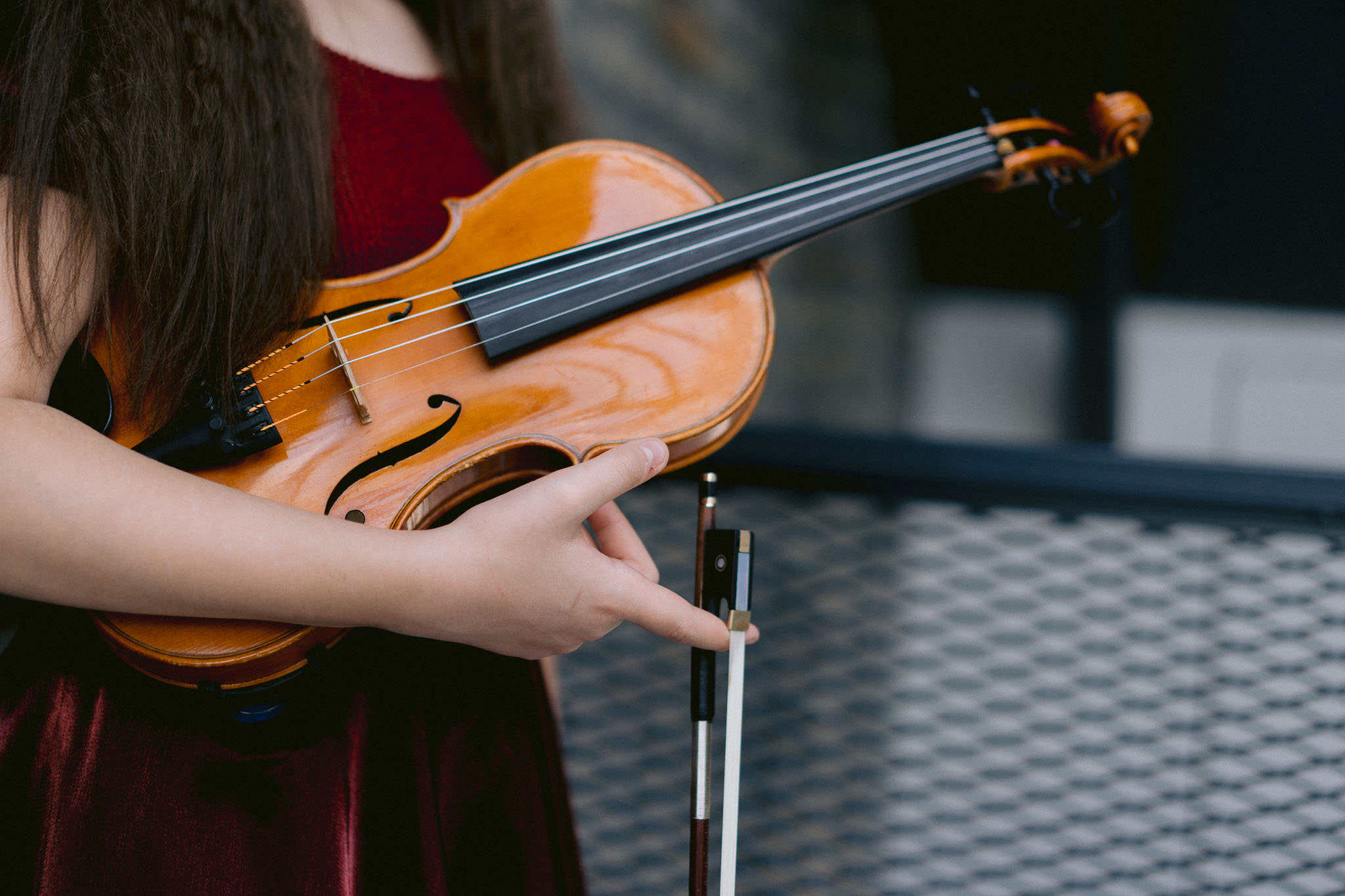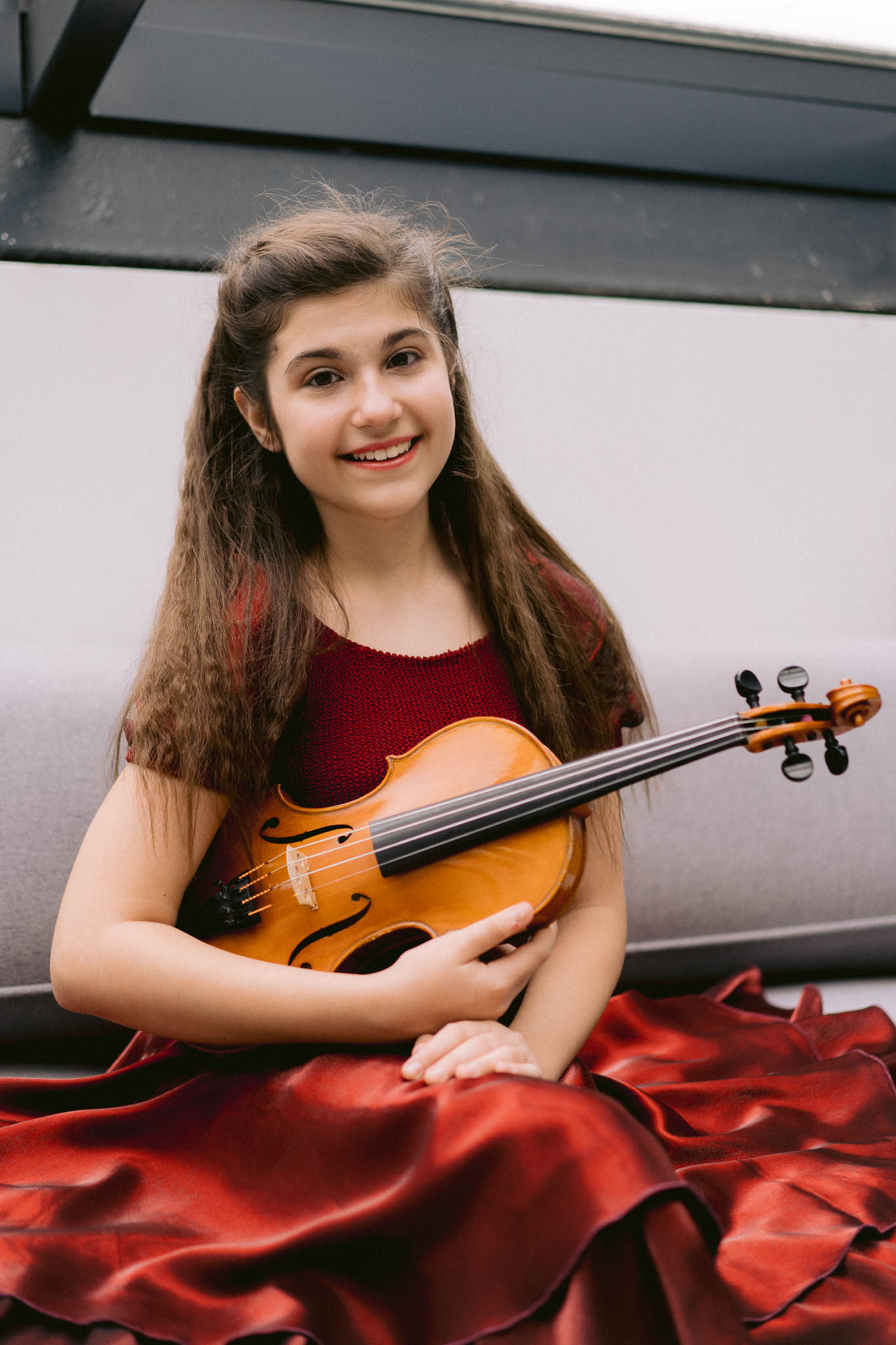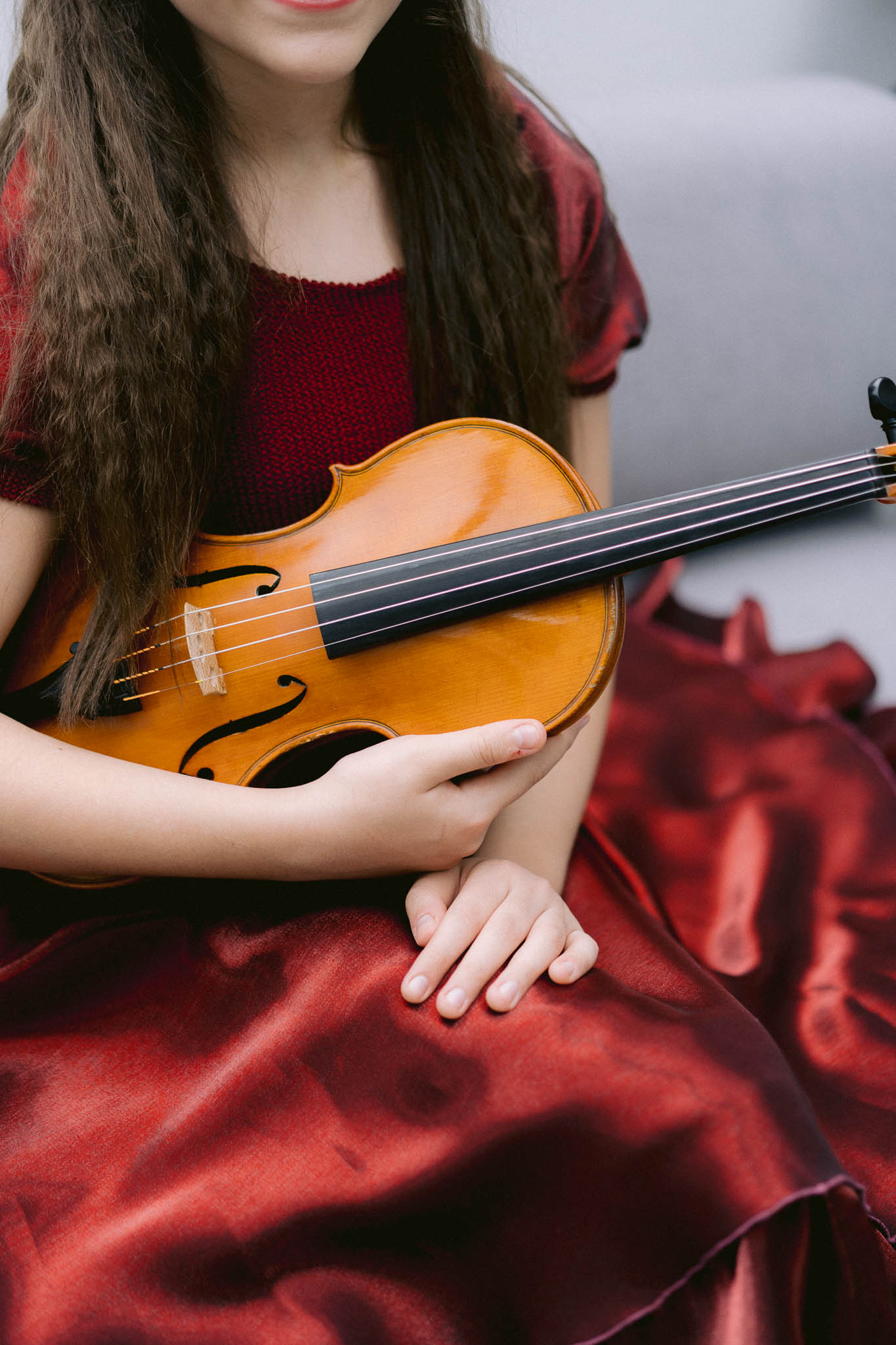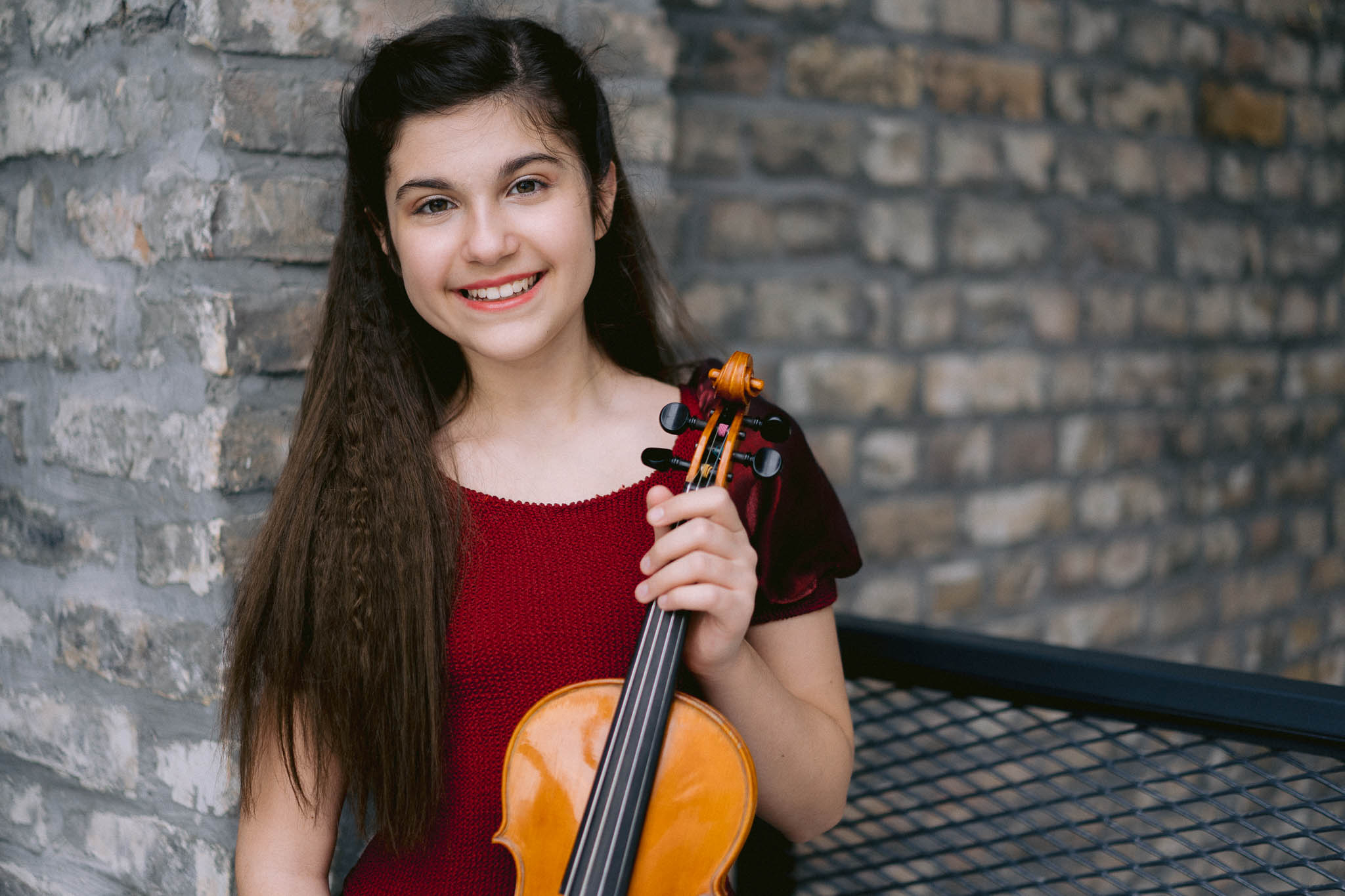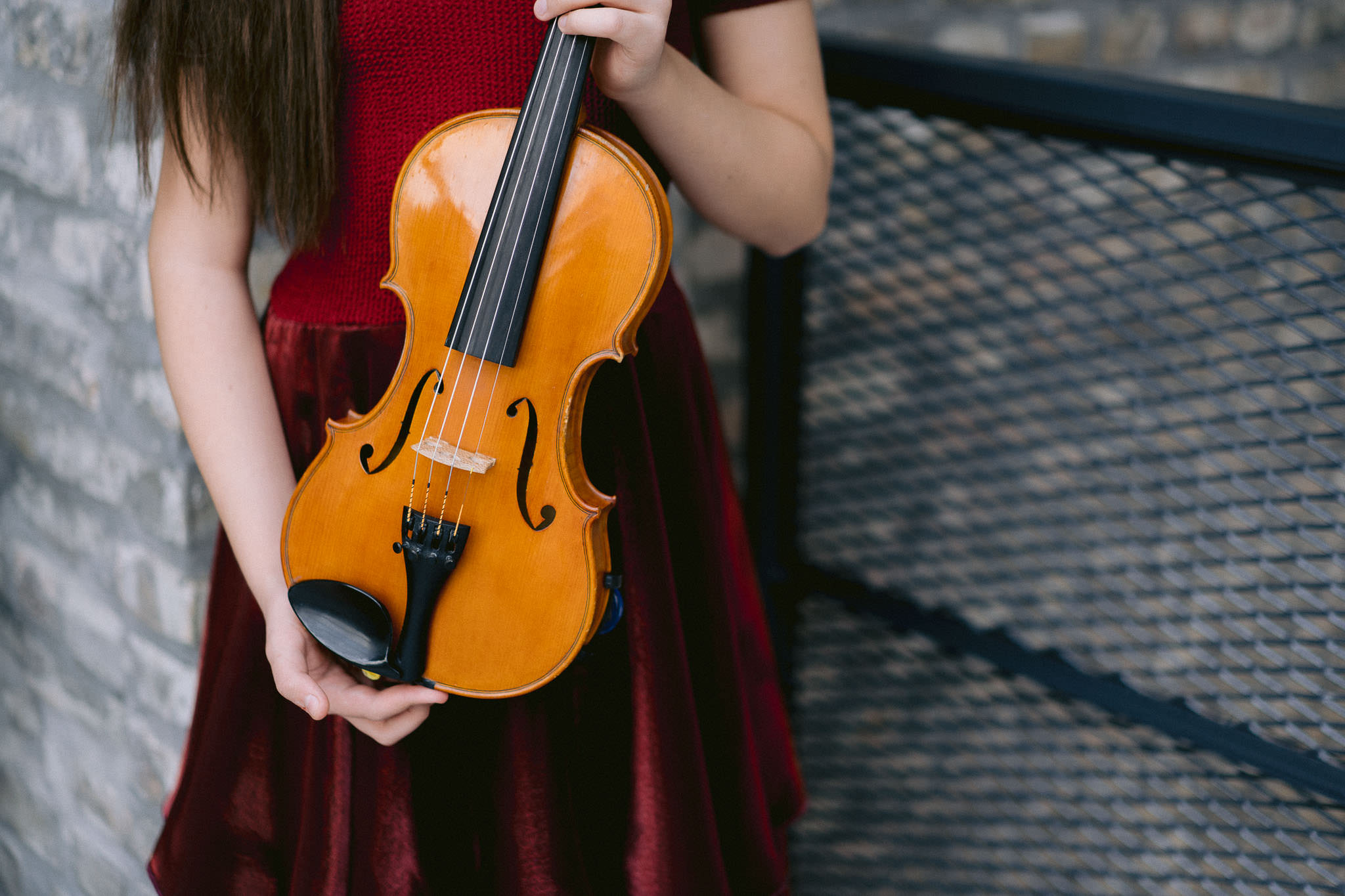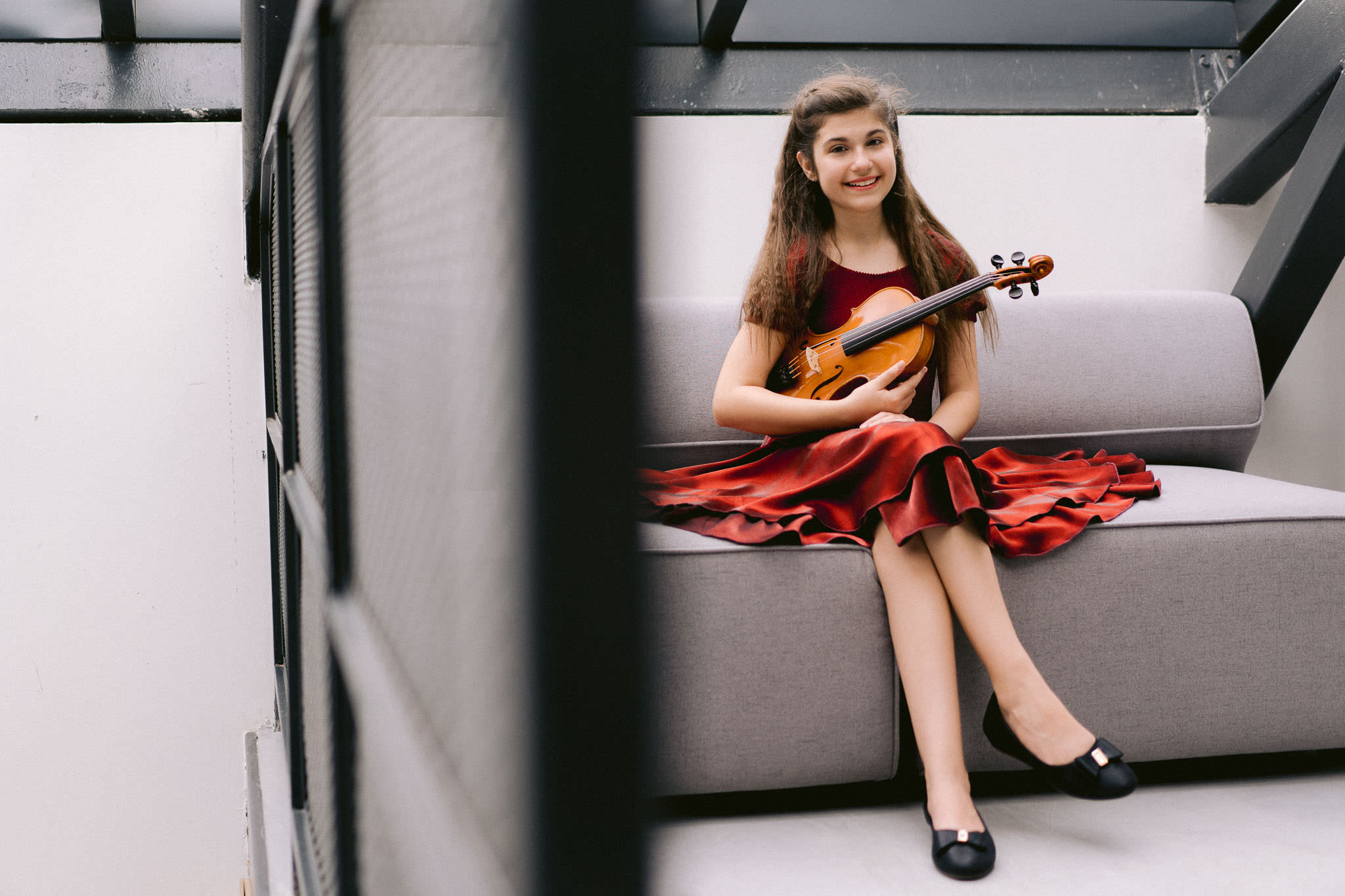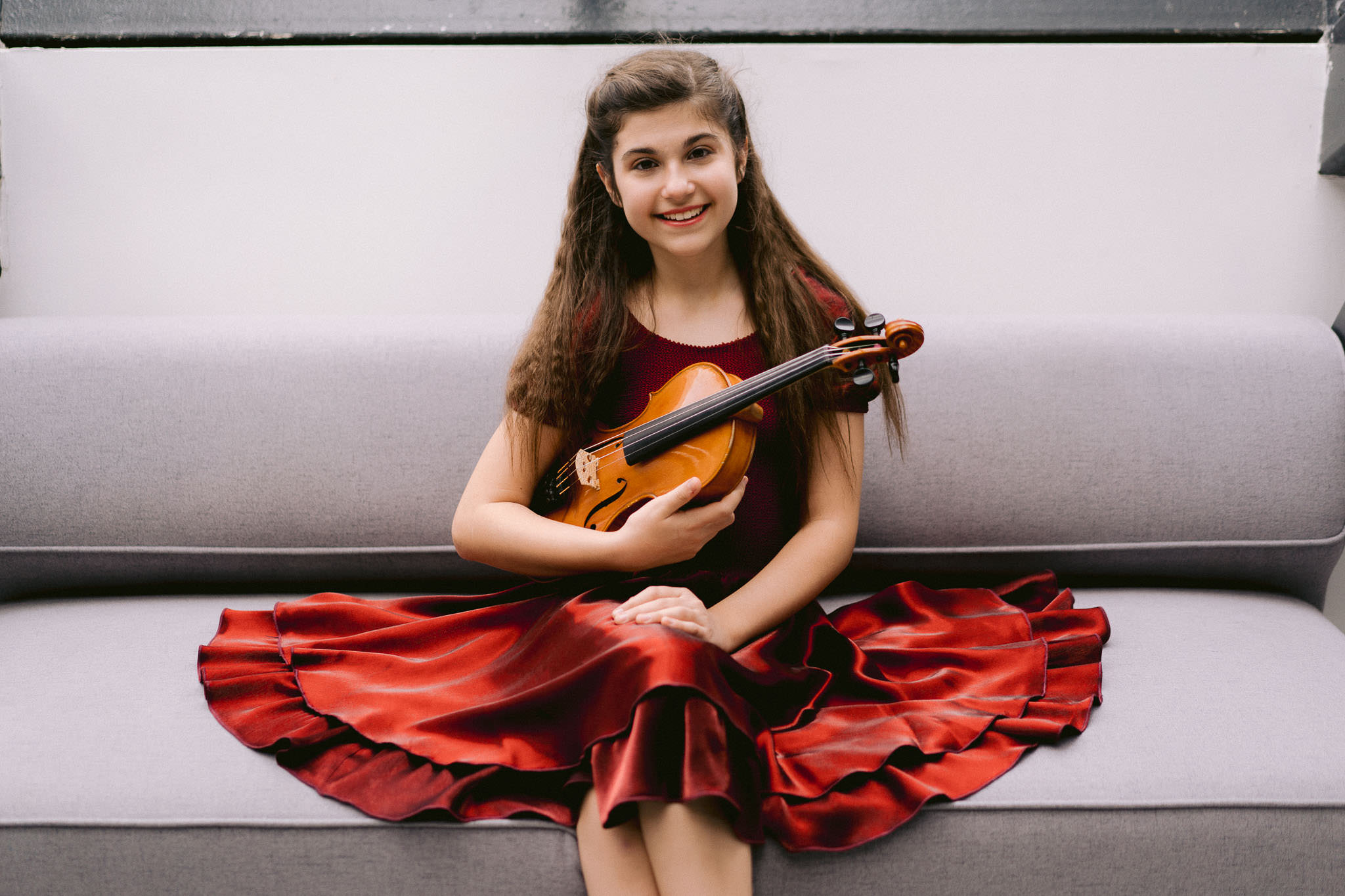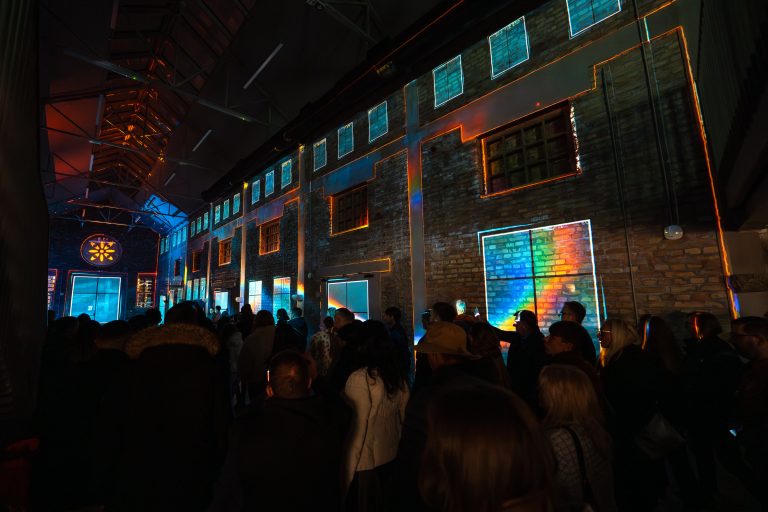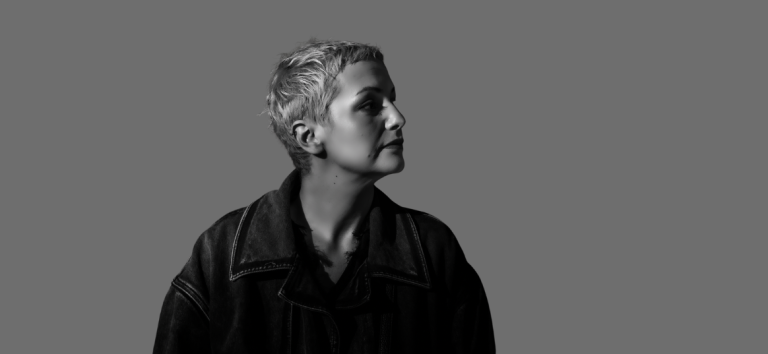Lana Zorjan is 12 years old, she owns a violin by Uroš Žikić, a violin collector, more than 40 first place awards in international competitions, she has performed numerous times around the world and has an enchanting combination of charm, modesty, self-confidence, talent and intelligence.
In addition to that, Lana Zorjan has a supportive family and friends from across the world, as well as the audience that is already used to Lana’s magical performances with the violin. On stage, she exhibits great energy, hypnotizing skills and talent, so much so that you almost forget you’re listening and watching the performance of a 12-year-old, whose time is yet to come.
You started playing violin when you were only four. How did you decide on this particular instrument?
– My mom is a violin professor and we’ve always had her students come to our house to practice. Dad or one of my grandmas would look after me during that time, but I would always somehow go into my mom’s workroom with my toys, sit on the floor, listen to her class and play. My parents say I was really young when I asked to play an instrument, but there wasn’t an adequat one for my tiny hands. Before I turned four, mom got me the smallest violin in Serbia, the so-called 1/32 violin, and that’s how I started to play.
Even though you are 13, you’ve performed numerous times and have a lot of prizes that prove that violin is more than just a hobby to you. Did you know such success was ahead of you?
– Absolutely no. At first, violin was a toy that helped me explore sounds and songs, but it turned out to be a lot more serious in just a couple of years. I was only five when I performed in my first international competition Fantast, where I scored 100 points and won the special prize in the category for children up to 9 years of age. It was the first time I got money as an award and that’s when everyone started to predict my future career. We’ll see if they were right.
Out of all the cities you’ve visited, which one is the most interesting to you and why?
– Vienna and Moscow! In Vienna, I visited the apartment where Wolfgang Amadeus Mozart used to live with his family, and I touched the billiard table he often used to compose on. I enjoyed the Butterfly House where I had butterflies land to my fingers for the first time in my life. I felt like I was in a dream. I visited the Schönbrunn Palace and a beautiful zoo. It was magical. Although I was only seven, I truly have vivid wonderful memories. I went to Moscow last year. It was cold, -11 degrees. Despite that, my mom and I spent the day outside, visiting the wonderful Moscow Metro, the Kremlin Armoury, the Diamond Vault, the famous shopping mall Gum where we could only afford ice cream since it’s a place where millionaires shop, but everything was quite interesting and captivating.
How do you select compositions for performances? What did you choose for the upcoming concert in Kolarac?
– Before choosing compositions, I always consult my professor Ivana Aćimoski-Žikić and my mom. We try to pick pieces that suit my character and through which I can improve my technique and interpretation, but we also think wider public should like them too. In March, I have four solo concerts scheduled – in Subotica, Novi Sad, Zrenjanin and Belgrade. I’ll play my own composition, Henryk Wieniawski’s Violin Concerto no. 2 and 3 as well as his piece Polonaise de Concert in D major, music from the movie The Postman arranged by Fedor Vrtačnik, and last but not least, a trio for two violins and a harp. I think it will be nice and I’ll definitely try my best.
How do you deal with stage fright? Did you manage to overcome it since you’ve already performed numerous times? What is more difficult, performing in front of an audience in your hometown, or performing abroad?
– Nervousness is an integral part of every public performance and represents wish to show yourself in the best light possible. I was less nervous when I was younger because I was playing shorter and incomparably simpler compositions. The bigger the programme, the more nervous I get. I prefer performing in concerts rather than in competitions, since those small errors aren’t that important to the audience, and so the pressure is lower. When it comes to competitions, they expect perfection from me and it’s not easy coping with such expectations.
You also compose music. A composition of yours, which was also awarded, came to life during quarantine. What inspired you to start composing and do you plan on dedicating yourself to it in the future?
– It was quite difficult at the beginning of quarantine. I was preparing for a big European competition in Prague, only to find out a week before I was supposed to go to Prague that it was postponed. After that, all competitions got cancelled. I was sad and demoralized. When my art teacher sent us an open call for children’s creativity, I decided to try composing. My first piece was done in a couple of days. I recorded it and sent it. The video recording was on YouTube and so the CEO of ‘Oskar Rieding’ from Slovenia saw it and sent the message to my mom, asking us to apply. In order to participate, I had to have scores in the Sibelius music notation software. Luckily, my grandpa Nice Fracile, who teaches at the Academy of Arts in Novi Sad, knows how the programme operates, so we did it together. So now I have sheet music as well. I plan on composing in the future, I’m just waiting for my next inspiration.
What is more difficult – playing compositions by eminent composers or making your own music?
– I believe it’s more difficult playing pieces by great composers, since there are a lot of stylistic characteristics and specific things to be met and fulfilled, while playing your own piece is more freeing.
Playing at your level must require a lot of effort. How much time a day do you practice and how do you overcome crises such as tiredness or lack of will?
– I try to practice two to three hours a day, depending on the programme and performance or the competition I’m preparing for. I think no child likes to practice, and I’m no exception. But having in mind that I love performing and that I see myself only as a violinist, I know that regular and devoted work is the only right path. Great artists say that talent is only 5 to 10 percent of success, the rest is hard work and discipline. Maybe I should practice more, but right now I feel as if spending more hours practicing would lead to a burnout and a lack of inspiration. However, in a couple of years, when the programme becomes more demanding, I think I’ll have to practice more.
This year, you performed within Doček, which was broadcast online. What is your impression of this unusual concert and how do you like the idea of your fellow citizens being able to hear classical music for New Year’s Eve?
– I was honoured to be part of this wonderful cultural project by the ‘Novi Sad 2022 – European Capital of Culture’ Foundation. The filming was wonderful. The crew was fantastic and when I saw how many people came to videotape me playing and how hard they tried to keep everything at the highest level possible, I must admit I was nervous not to disappoint them. I was so happy when I heard that my concert would be broadcast in the evening hours, right before the concert of Stefan Milenković. To me, it’s a great honour and I want to thank the Foundation for trusting me.
You mentioned your older colleague Stefan Milenković, one of the greatest violinists in the world. Many people compare you to him. Do you have any role models when it comes to violin or maybe some other forms of art that you admire?
– Stefan Milenković is my biggest idol and role model, I’m beyond happy that he’s going to be the director of the Concert Hall and that he’ll be teaching at the Academy of Arts in Novi Sad. I’ll try my best to be in his class. That’s my biggest dream and I hope it comes true. Besides Stefan, I admire and like to listen to Nemanja Radulović, Veriko Tchumburidze, Bomsori Kim…
What is Lana like offstage, when she’s not holding a violin in her hand? How and where do you spend your free time?
– Like all kids my age, I like spending time on social media, mainly Instagram, TikTok and YouTube. I like hanging out with my friends and chatting with colleagues from other countries that I met during competitions. With a friend from Lithuania, I like to play a video game called Roblox, while with a friend from Belgrade I run a profile on TikTok dedicated to that same game. I love playing with my dog Srećko and my cat Maza. Unfortunately, despite the fact that I’m attending a special programme for talented kids, I still have to study for school just like other children.
What makes you happy in Novi Sad?
– My family and friends. I love spending time at the Štrand beach, Fortress, Kamenički Park, Venac, NOMUS, the opera where my dad sings. I hope I’ll be able to stay in Novi Sad and travel to concerts and competitions all around the world.
Are there any events in the city you never miss?
– I never miss concerts at the NOMUS. I went even during the pandemic. I love concerts by the Vojvodina Symphony Orchestra, I love opera very much, especially comic opera and I’m delighted that Novi Sad was chosen to be the European Capital of Culture because it will bring cultural events closer to us, culture will be more available than in other cities in Serbia.
Photo: Vladimir Veličković

